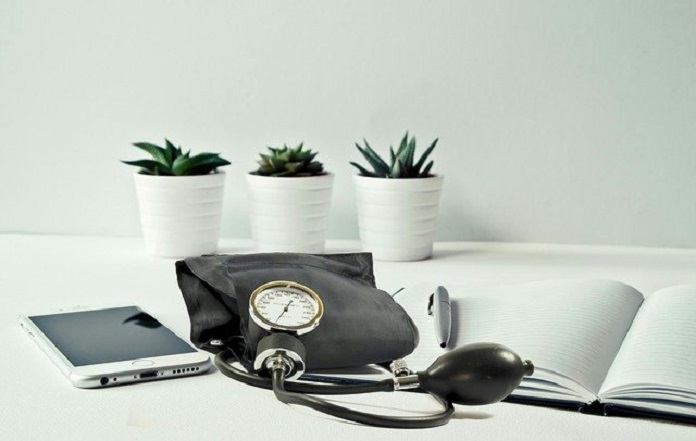One in three people has high blood pressure, which is a key modifiable risk factor for cardiovascular diseases
Blood pressure is vital for blood flow through the body and supply of oxygen and nutrients to organs.
High blood pressure (hypertension) means that your heart must work harder to pump blood around the body and adds extra strain on your blood vessels, brain, kidneys, and eyes.
This increased blood flow puts patients at a higher risk of cardiovascular diseases (such as heart attacks), strokes, and kidney disease. Cardiovascular diseases are the leading cause of death globally.
Regular checking of blood pressure is important since hypertension is usually undiagnosed due to a lack of noticeable symptoms.
Checks are particularly critical in individuals who are over the age of 40, overweight, sedentary or have a family history of heart disease or hypertension.
Readings are made up of systolic pressure (the highest level that your blood pressure reaches during heart contraction) and diastolic pressure (the lowest level as your heart relaxes).
In individuals without medical conditions, blood pressure should be below 140/90mmHg. If it is consistently higher than recommended, that is indicative of hypertension.
There are various therapeutic options available to manage your hypertension. You can choose to make heart-healthy lifestyle changes and/or take medicines.
Lifestyle changes
1. Maintain a healthy body weight:
- Aim for a ‘normal’ body mass index (BMI) of 18.5-24.9kg/m2 since there is a strong link between a high BMI and high blood pressure
- Losing weight if you are overweight can help prevent and lower hypertension
2. Eating a healthy diet:
- Consume a diet that is rich in fruits and vegetables
- Reduce salt intake (consume a maximum of 2400mg of sodium per day but ideally under 1500mg)
- Lower your consumption of processed foods, which are normally high in salt
- Eat more foods that are high in potassium to limit the effects of sodium, such as spinach, sweet potatoes, mushrooms, and raisins
3. Increase physical activity:
- Engage in regular aerobic physical activity
- Build up to at least 150 minutes per week
4. Reduce stress:
- Chronic stress is associated with hypertension due to an increased heart rate and constricted blood vessels
- Manage your stress levels using a method that works best for you, such as yoga, meditation, or tai chi
5. Avoid drinking too much alcohol:
- If you drink alcohol, limit consumption to no more than 3-4 units for men and 2-3 units for women per day
- Drink moderately since alcohol can reduce the efficiency of hypertension medicines
- It may also be beneficial if you can cut down on coffee and caffeine-based drinks
6. Stop smoking:
- Avoid smoking cigarettes as it can damage your blood vessels and cause hypertension
- Quitting smoking can limit the chances of developing heart disease and improve your general health
7. Sleep 7-9 hours every night:
- Sleep deprivation has been found to contribute to hypertension
- It is important to get restful sleep since blood pressure naturally drops during sleep
Medications
In addition to a healthy lifestyle, controlling high blood pressure may require a long-term daily intake of blood pressure medicines.
Most patients are prescribed more than one type of medicine since drugs for hypertension work in different ways.
Common blood pressure medications include:
- Angiotensin-converting enzyme (ACE) inhibitors
- Angiotensin receptor blockers (ARB)
- Calcium channel blockers (CCB)
- Diuretics, such as indapamide
It is important to be aware of the side effects of blood pressure medicines.
A common side effect of ACE inhibitors is a persistent dry cough (10 in every 100 people are affected). Common side effects of CCB include swollen ankles, headaches, and heart palpitations.
Consult a doctor immediately if you have any side effects from medications.
Written by Albina Babu, MSc
Relevant topics that may be of interest to you:
- Targeting the Immune Cells to Treat High Blood Pressure
- Do Nitrate-Rich Vegetables Lower High Blood Pressure?
- Effects of Mediterranean Diet on Endothelial Function and Blood Pressure
- Does dietary nitrate help decrease high blood pressure?
- Can a home blood pressure monitor predict disease risk?
References:
Latest research (2013). BHF. Retrieved from: https://www.bhf.org.uk/informationsupport/heart-matters-magazine/research/blood-pressure
High blood pressure: prevention, treatment and research (2020). Johns Hopkins Medicine.
Go, A.S., et al. (2014). An effective approach to high blood pressure control: a science advisory from the American Heart Association, the American College of Cardiology, and the Centers for Disease Control and Prevention. Hypertension, 63(4), pp.878-885.
Dimeo, F., et al. (2012). Aerobic exercise reduces blood pressure in resistant hypertension. Hypertension, 60(3), pp.653-658.
Image by mohamed Hassan from Pixabay



